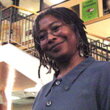A mercy
Description
More Details
9780307270443
9781415956816
9780739332542
9780739326305
9781415956823
Excerpt
Similar Titles From NoveList
Similar Authors From NoveList
Published Reviews
Booklist Review
*Starred Review* In its first pages, Morrison's latest novel seems to be a retread of the author's old themes, settings, and narrative voice; however, it quickly achieves its own brilliant identity. The time is the late 1600s, when what will become the U.S. remains a chain of colonies along the Atlantic coast. Not only does slavery still exist, it is a thriving industry that translates into plenty of business for lots of people. These factors coalesce to provide the atmosphere and plot points for Morrison's riveting, even poetic, new novel. She has shown a partiality for the chorus method of storytelling, wherein a group of indivuals who are involved in a single event or incident tell their versions of what happened, the individual voices maintaining their distinctiveness while their personal tales overlap each other with a layering effect that gives Morrison's prose its resonance and deep sheen of enameling. Here the voices belong to the women associated with Virginia planter Jacob Vaark, who has quickly risen from ratty orphan to a man of means; these women include the long-suffering Rebekka, his wife; Lina and Sorrow, slave women with unique perspectives on the events taking place on Vaark's plantation; and Florens, a slave girl whom Vaark accepts as partial payment on a debt and whose separation from her mother is the pivotal event around which Morrison weaves her short but deeply involving story. A fitting companion to her highly regarded Beloved.--Hooper, Brad Copyright 2008 Booklist
Publisher's Weekly Review
Some authors make mediocre readers, but Nobel Prize-winning Toni Morrison is certainly not among them. Her husky voice, lyrical rhythms and precise timing--especially of pauses within sentences or even phrases--give clarity and poignancy to her vivid metaphors and elegant prose. Set in the 1680s, this story tells of multiple forms of love and of slavery. Florens is a slave girl whose mother urges her sale to Jacob, a decent man, to save her from a rapist master. Florens feels abandoned and is finally betrayed by the lover she worships. Morrison holds the listener completely in thrall through her narrative, her characters, her language and her own fine reading. An enlightening interview with the author appears at the end. A Knopf hardcover (Reviews, Sept. 15). (Nov.) (c) Copyright PWxyz, LLC. All rights reserved
Library Journal Review
In 1690, Anglo-Dutch trader Jacob Vaark sets off from New Amsterdam to collect a debt from a landowner in Maryland. Arriving at the plantation, Vaark discovers that the debtor cannot pay, and Vaark reluctantly decides to accept a young slave girl, Florens, as partial compensation. Taken from her baby brother and her mother, who thinks that giving up her daughter to a kinder slave owner is an act of mercy, Florens finds herself in the midst of a community of women striving to understand their burdens of sorrow and grief and to discover the mercies of love. Much as she did in Paradise, Morrison hauntingly weaves the stories of these women into a colorful tale of loss, despair, hope, and love. Knitted together with Florens's own tale of her search to be reunited with her mother are the wrenching stories of Sorrow, a young woman who spent most of her time at sea before coming to Vaark's home; Lina, a Native American healer and storyteller who looks after Florens as a mother would a daughter; and Rebekka, Vaark's wife and Florens's mistress, who endures her own persecution, loss, and sorrow. Magical, mystical, and memorable, Morrison's poignant parable of mercies hidden and revealed belongs in every library. [See Prepub Alert, LJ 7/08.]--Henry L. Carrigan Jr., Evanston, IL (c) Copyright 2010. Library Journals LLC, a wholly owned subsidiary of Media Source, Inc. No redistribution permitted.
Kirkus Book Review
Abandonment, betrayal and loss are the somber themes of this latest exploration of America's morally compromised history from Morrison (Love, 2003, etc.). All the characters she sets down in the colonial landscape circa 1690 are bereft, none more evidently so than Florens, 16-year-old slave of Jacob Vaark and his wife Rebekka. Eight years earlier, Anglo-Dutch farmer and trader Jacob reluctantly took Florens in settlement of a debt from a Maryland landowner. Her own mother offered herso as not to be traded with Florens' infant brother, the girl thinks. (The searing final monologue reveals it was not so simple.) Florens joined a household of misfits somewhere in the North. Jacob was a poor orphan who came to America to make a new start; Rebekka's parents essentially sold her to him to spare themselves her upkeep. The couple has shared love, but also sadness; all four of their offspring died in childhood. They take in others similarly devastated. Lina, raped by a "Europe," has been cast out by her Native American tribe. Mixed-race Sorrow survived a shipwreck only to be made pregnant by her rescuer, who handed her over to Jacob. Willard and Scully are indentured servants, farmed out to labor for Jacob by their contract holders, who keep fraudulently extending their time. Only the free African blacksmith who helps Jacob construct his fancy new houseand who catches Florens' love-starved eyeseems whole and self-sufficient, though he eventually falls prey to Florens' raging fear of abandonment. Morrison's point, made in a variety of often-melodramatic plot developments, is that America was founded on the involuntary servitude of blacks and whites, that the colonies are rife with people who belong nowhere else and anxiously strive to find something to hold onto in the New World. Gorgeous language and powerful understanding of the darkest regions in the human heart compensate for the slightly schematic nature of the characters and the plot. Better seen as a lengthy prose poem than a novel, this allusive, elusive little gem adds its own shadowy luster to the Nobel laureate's shimmering body of work. Copyright Kirkus Reviews, used with permission.
Booklist Reviews
*Starred Review* In its first pages, Morrison's latest novel seems to be a retread of the author's old themes, settings, and narrative voice; however, it quickly achieves its own brilliant identity. The time is the late 1600s, when what will become the U.S. remains a chain of colonies along the Atlantic coast. Not only does slavery still exist, it is a thriving industry that translates into plenty of business for lots of people. These factors coalesce to provide the atmosphere and plot points for Morrison's riveting, even poetic, new novel. She has shown a partiality for the chorus method of storytelling, wherein a group of indivuals who are involved in a single event or incident tell their versions of what happened, the individual voices maintaining their distinctiveness while their personal tales overlap each other with a layering effect that gives Morrison's prose its resonance and deep sheen of enameling. Here the voices belong to the women associated with Virginia planter Jacob Vaark, who has quickly risen from ratty orphan to a man of means; these women include the long-suffering Rebekka, his wife; Lina and Sorrow, slave women with unique perspectives on the events taking place on Vaark's plantation; and Florens, a slave girl whom Vaark accepts as partial payment on a debt and whose separation from her mother is the pivotal event around which Morrison weaves her short but deeply involving story. A fitting companion to her highly regarded Beloved. Copyright 2008 Booklist Reviews.
Library Journal Reviews
In the 1680s, as payment for a bad debt, Anglo-Dutch trader Jacob accepts a slave girl named Florens, whose anguished mother hopes she'll have a better life. With a four-city tour. Copyright 2008 Reed Business Information.
Library Journal Reviews
In 1690, Anglo-Dutch trader Jacob Vaark sets off from New Amsterdam to collect a debt from a landowner in Maryland. Arriving at the plantation, Vaark discovers that the debtor cannot pay, and Vaark reluctantly decides to accept a young slave girl, Florens, as partial compensation. Taken from her baby brother and her mother, who thinks that giving up her daughter to a kinder slave owner is an act of mercy, Florens finds herself in the midst of a community of women striving to understand their burdens of sorrow and grief and to discover the mercies of love. Much as she did in Paradise , Morrison hauntingly weaves the stories of these women into a colorful tale of loss, despair, hope, and love. Knitted together with Florens's own tale of her search to be reunited with her mother are the wrenching stories of Sorrow, a young woman who spent most of her time at sea before coming to Vaark's home; Lina, a Native American healer and storyteller who looks after Florens as a mother would a daughter; and Rebekka, Vaark's wife and Florens's mistress, who endures her own persecution, loss, and sorrow. Magical, mystical, and memorable, Morrison's poignant parable of mercies hidden and revealed belongs in every library. [See Prepub Alert, LJ 7/08.]—Henry L. Carrigan Jr., Evanston, IL
[Page 58]. Copyright 2008 Reed Business Information.Library Journal Reviews
In this prequel to Beloved, a Catholic plantation owner satisfies a debt by offering Anglo-Dutch trader Jacob Vaark a young slave girl—whose mother hopes she will find a better life. What follows is a tale of love, disease, and the brutality of slavery. (LJ 10/15/08)
[Page 80]. Copyright 2008 Reed Business Information.Library Journal Reviews
Is it truly a mercy for a mother to give up her daughter to a less fearsome owner? Nobel laureate Morrison explores that awful question in coruscating prose, tracing the human cost of slavery back to Colonial America while reminding us of love's binding power. It's almost unimaginable that Morrison could best herself-but she has. (LJ 10/15/08) Copyright 2008 Reed Business Information.
Publishers Weekly Reviews
Nobel laureate Morrison returns more explicitly to the net of pain cast by slavery, a theme she detailed so memorably in Beloved . Set at the close of the 17th century, the book details America's untoward foundation: dominion over Native Americans, indentured workers, women and slaves. A slave at a plantation in Maryland offers up her daughter, Florens, to a relatively humane Northern farmer, Jacob, as debt payment from their owner. The ripples of this choice spread to the inhabitants of Jacob's farm, populated by women with intersecting and conflicting desires. Jacob's wife, Rebekka, struggles with her faith as she loses one child after another to the harsh New World. A Native servant, Lina, survivor of a smallpox outbreak, craves Florens's love to replace the family taken from her, and distrusts the other servant, a peculiar girl named Sorrow. When Jacob falls ill, all these women are threatened. Morrison's lyricism infuses the shifting voices of her characters as they describe a brutal society being forged in the wilderness. Morrison's unflinching narrative is all the more powerful for its relative brevity; it takes hold of the reader and doesn't let go until the wrenching final-page crescendo. (Nov.)
[Page 42]. Copyright 2008 Reed Business Information.



































